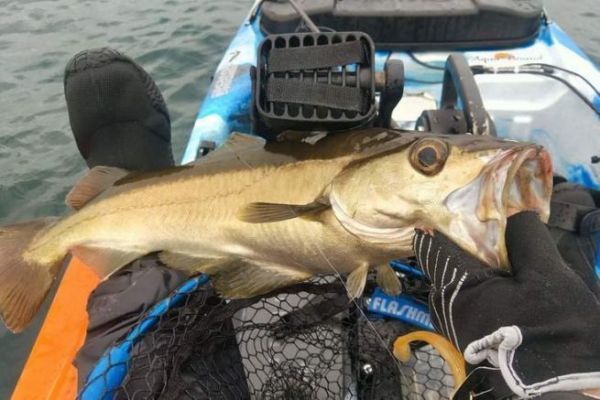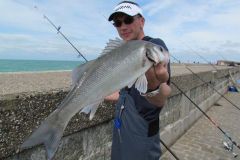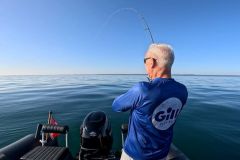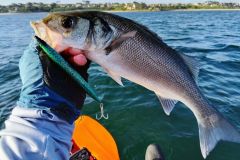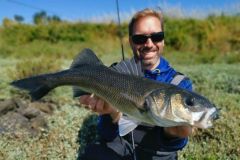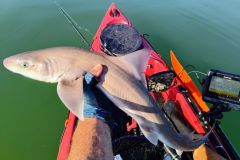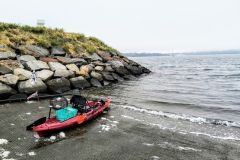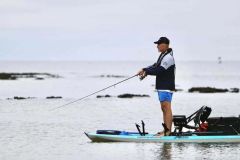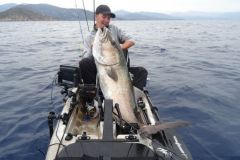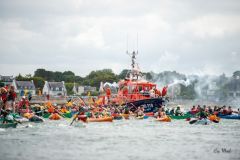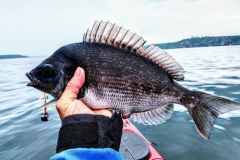Autumn conditions
With the weather on schedule, it was time for everything to get back on track. When the weather gets back on schedule, it sets the record straight, no pun intended. For our kayak outings, we break out the cold-season gear and look for species that are active again during these colder months. Even if the transition was abrupt and sudden, we can only rejoice at this update. And to validate this return to normality, what better way than to head out into the open sea in search of yellow leeches.
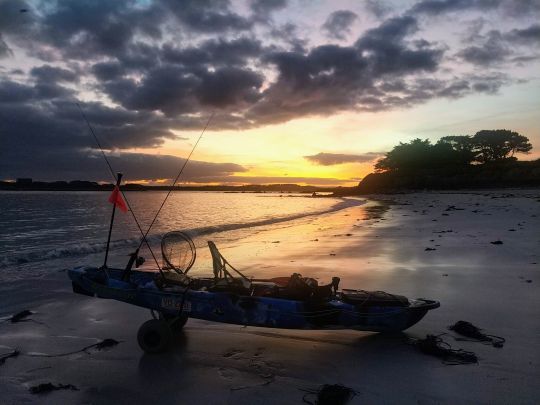
For this outing, I had to dig out the watch jacket and longjohn. 6 or 7°C at daybreak, 15 km/h north-easterly wind, 89 coefficient, with a high tide at 06:20, the tidal current will carry me offshore fairly quickly. I'll have to pedal to stay on my spots and play with the daggerboards to stay as vertical as possible. The launch takes place under a slightly overcast, but non-threatening sky, as is often the case, with sea bass in action on the starting beach. It doesn't take me long to get them on the lure. The water is clear enough and I've chosen a sardine-colored mega flash, a sure bet for swimming fish in the upper zone. But I didn't come out for this fish, which is active until late November, early December in our neck of the woods. No, I'm out for the lees and back to my usual spots.
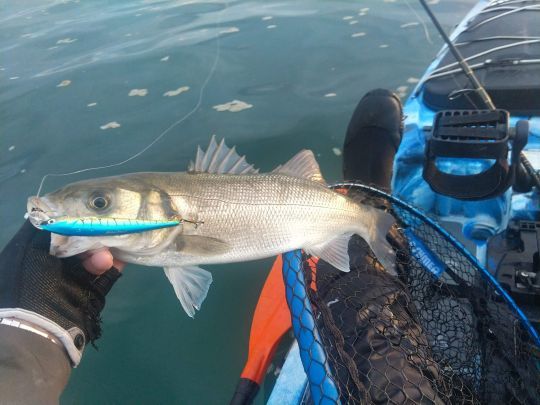
Detection fishing
It's a fishery where the depth sounder is important, it's a detection fishery. The fish are not stationary, but passing through, following the food that moves with the tidal current. On the way, I catch 3 fish in quick succession after a good first detection, before the shoal disappears from the screen. It's good to know that we were right to go out and, above all, to find our target species. Unfortunately, I don't have the time to lift the fish a little to put it in the water, I feel it rubbing against the bottom and it's the end of the line. My 30/100 didn't stand up to his defense, you can't win every time.
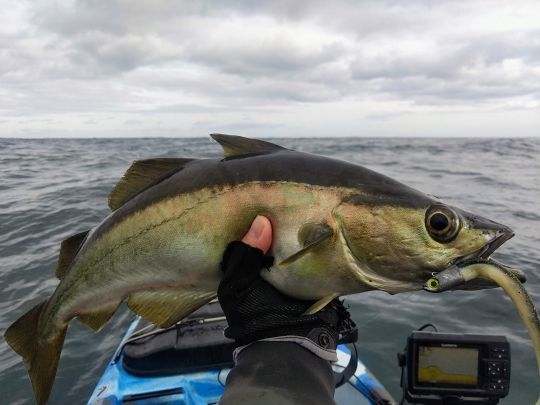
So I redid my rig, this time with a 33/100, and put back on a talashad with a 30-gram astubreizh head, which seemed to be the right combo for this outing given the current conditions. at a depth of 30 meters, I touch bottom and start animating using the classic elevator method. One look at the screen and I see that the lure is being followed. I make a stop and it's touch, strike and hang. This time the fish is already in the water and can't repeat his friend's trick. He tries to get back to the bottom, but with my new rig, I can restrain him a little more. The fight turns to my advantage and this last fish ends up in the landing net. It's a nice, fat fish that will delight the whole table.
It's 11.00 am and the tide is still falling until 12.30 pm, so it's time to make our way back with a fairly strong current on our nose. It's going to take me a little longer than usual to get close to the coast before the wind shifts.
The importance of a good carrying cart
As I set foot on a well-cleared foreshore, I have 200 m of hard sand beach, seaweed, pebbles and soft sand at the top of the beach to pass. The importance of a good portage cart in these conditions cannot be overstated. Especially a cart adapted to the shape of the float's hull. It's essential to avoid a mess, as I show at the end of the video at the end of this article.
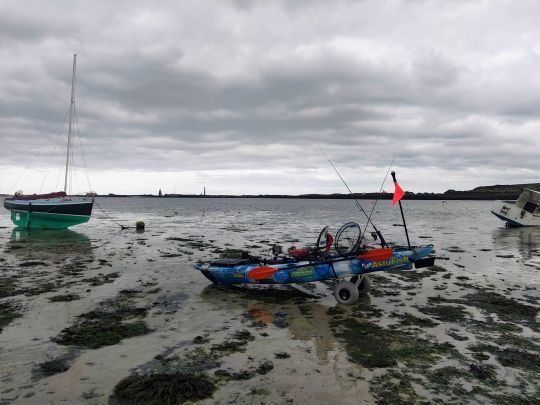
Another tip: it's easier to push your kayak than to pull it, especially when it's going uphill. The usual snack will be taken at the top of the beach to round off this truly successful first autumn session.
